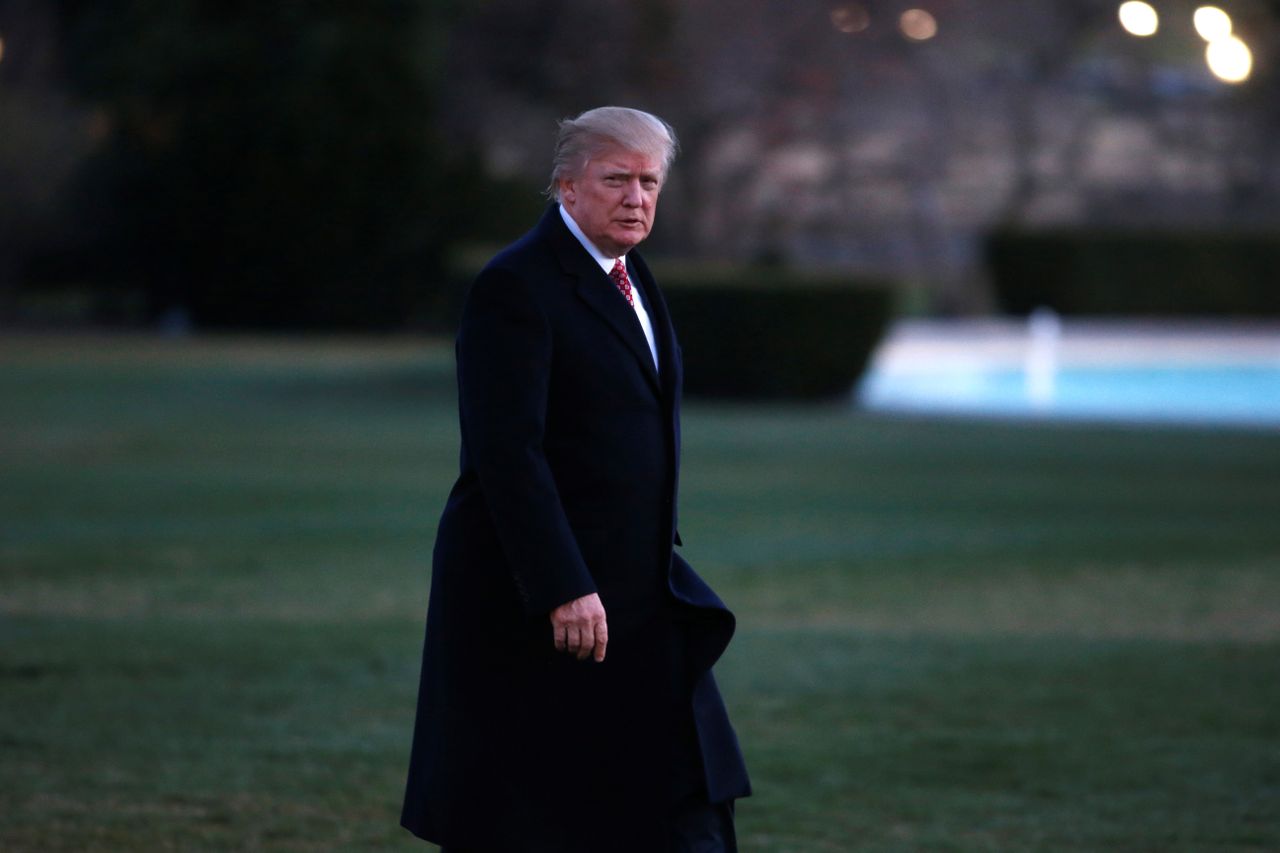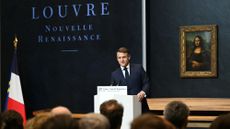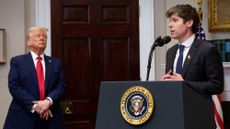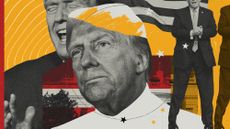Donald Trump shows why businessmen make bad presidents
Pursuit of private profit at all costs corrodes government


One of the most consistent tropes of conservative political rhetoric in America is that Businessmen Do It Better. They insist that private enterprise is the wellspring of all political wisdom, whether that means privatizing state-run programs, outsourcing key government capacities to rapacious corporations, or above all simply electing business leaders to high office.
Well, now we have the purest example in American history of a businessman president. Donald J. Trump is the richest president in decades, and unlike every one of his predecessors, he has precisely zero political experience. Instead he constantly touts his business acumen as being more than enough qualification for being president.
The result: absolute disaster, and not just because he's advancing disastrous policies (though he is doing that). President Trump is also an atrocious manager, precisely because his business instincts are catastrophically ill-suited to the presidency.
Subscribe to The Week
Escape your echo chamber. Get the facts behind the news, plus analysis from multiple perspectives.

Sign up for The Week's Free Newsletters
From our morning news briefing to a weekly Good News Newsletter, get the best of The Week delivered directly to your inbox.
From our morning news briefing to a weekly Good News Newsletter, get the best of The Week delivered directly to your inbox.
The latest in the rolling tsunami of Trump-bungling stories comes from an investigation into executive branch staffing by The New York Times. They find that he is far, far behind the average in filling appointed executive branch jobs, with only a tiny fraction of the hundreds of open positions filled — and no sign the backlog is going to be eased anytime soon.
Why? Last month, Trump insisted that many of those positions are "unnecessary." Now, this is surely in part to cover up the fact that the backlog is due to Trump's instability, his insistence on slavish personal loyalty, and his sheer incompetence. The Trump team apparently does intend to fill most of those posts.
However, the administration is also proposing large cuts to many government agencies. And what's more, this general style is a signature Trump business tactic. He made his money by borrowing hugely to exploit a housing bubble, by structuring contracts to enrich himself at the expense of his creditors, and by straight-up looting his business investments. Neglecting to hire nine-tenths of the executive staff smacks of the many times that he deliberately refused to pay his construction laborers. Though he obviously wasn't planning to cut workers so as to increase his own salary, a man focused with laser precision on getting more for himself and less for everyone else will naturally struggle to grasp the necessity of compiling a big roster of qualified bureaucrats. Indeed, one gets the very strong sense that Trump didn't have the first clue about these staffing needs until just now, much less how to make government do what he wants.
A probable rejoinder to this argument is that Trump is not actually much of a traditional businessman, unlike, say, Jeff Bezos. He never actually built the sort of canonical business where you sell something at a profit. Surely running Amazon would be better preparation for the presidency than Trump's career?
On the one hand, I do imagine that President Bezos would at least be able to round up enough people to staff out the executive branch. He probably would not have Trump's level of egomania or chaotic pettiness. But on the other, Trump also shares many misunderstandings that are practically universally espoused by the business class — believing that the government is chock-full of wasteful spending, or failing to grasp the implication of borrowing in one's own sovereign currency.
But more fundamentally, Trump's style of business is far more representative of modern American capitalism than Henry Ford. Smash and grab business, coordinated by Wall Street — where corporations are bled dry for quick profits and competitive markets are rolled up into stagnant oligopolies — is far, far more standard today than the plucky start-up entrepreneur. As economist J.W. Mason has shown, corporate profits and borrowing are mostly no longer sunk back into the business — instead they are immediately kicked out to shareholders in the form of dividends and share buybacks. The 2012 Republican presidential nominee was a specialist in just this sort of bloodsucking financial chicanery.
Even Amazon — which does not disgorge the cash like this, at least not yet — has lost much of its traditional business form. Instead it acts more and more like a platform monopolist, using its strategic position as the route by which other online business is conducted to extract payment.
Indeed, it's hard to see how anyone could possibly swallow the conservative business-worship line in the first place, in an age when most large businesses are incompetent price-gouging oligopolists. There are probably more socialists created on the customer service line with Comcast or Aetna than socialist organizers have ever converted.
But at any rate, the government is not a business, and not simply because its basic structure and function are dissimilar to that of a corporation. The really bedrock difference, as Charles Peters writes in his new book We Do Our Part, is that quality government requires a sense of public spiritedness and a moral conscience. Sociopathic pursuit of profit at all costs — the defining characteristic of the modern American businessman — is a route to corruption and disaster.
Sign up for Today's Best Articles in your inbox
A free daily email with the biggest news stories of the day – and the best features from TheWeek.com
Ryan Cooper is a national correspondent at TheWeek.com. His work has appeared in the Washington Monthly, The New Republic, and the Washington Post.
-
 Student loan wage garnishment: how it works and how you can stop it
Student loan wage garnishment: how it works and how you can stop itThe Explainer Your loan servicer may seize your wages if you fail to make payments on your student debt
By Becca Stanek, The Week US Published
-
 The Louvre is giving 'Mona Lisa' her own room
The Louvre is giving 'Mona Lisa' her own roomSpeed Read The world's most-visited art museum is getting a major renovation
By Peter Weber, The Week US Published
-
 OpenAI announces ChatGPT Gov for government use
OpenAI announces ChatGPT Gov for government useSpeed Read The artificial intelligence research company has launched a new version of its chatbot tailored for the US government
By Rafi Schwartz, The Week US Published
-
 Will Trump's 'madman' strategy pay off?
Will Trump's 'madman' strategy pay off?Today's Big Question Incoming US president likes to seem unpredictable but, this time round, world leaders could be wise to his playbook
By Sorcha Bradley, The Week UK Published
-
 US election: who the billionaires are backing
US election: who the billionaires are backingThe Explainer More have endorsed Kamala Harris than Donald Trump, but among the 'ultra-rich' the split is more even
By Harriet Marsden, The Week UK Published
-
 US election: where things stand with one week to go
US election: where things stand with one week to goThe Explainer Harris' lead in the polls has been narrowing in Trump's favour, but her campaign remains 'cautiously optimistic'
By Harriet Marsden, The Week UK Published
-
 Is Trump okay?
Is Trump okay?Today's Big Question Former president's mental fitness and alleged cognitive decline firmly back in the spotlight after 'bizarre' town hall event
By Harriet Marsden, The Week UK Published
-
 The life and times of Kamala Harris
The life and times of Kamala HarrisThe Explainer The vice-president is narrowly leading the race to become the next US president. How did she get to where she is now?
By The Week UK Published
-
 Will 'weirdly civil' VP debate move dial in US election?
Will 'weirdly civil' VP debate move dial in US election?Today's Big Question 'Diametrically opposed' candidates showed 'a lot of commonality' on some issues, but offered competing visions for America's future and democracy
By Harriet Marsden, The Week UK Published
-
 1 of 6 'Trump Train' drivers liable in Biden bus blockade
1 of 6 'Trump Train' drivers liable in Biden bus blockadeSpeed Read Only one of the accused was found liable in the case concerning the deliberate slowing of a 2020 Biden campaign bus
By Peter Weber, The Week US Published
-
 How could J.D. Vance impact the special relationship?
How could J.D. Vance impact the special relationship?Today's Big Question Trump's hawkish pick for VP said UK is the first 'truly Islamist country' with a nuclear weapon
By Harriet Marsden, The Week UK Published